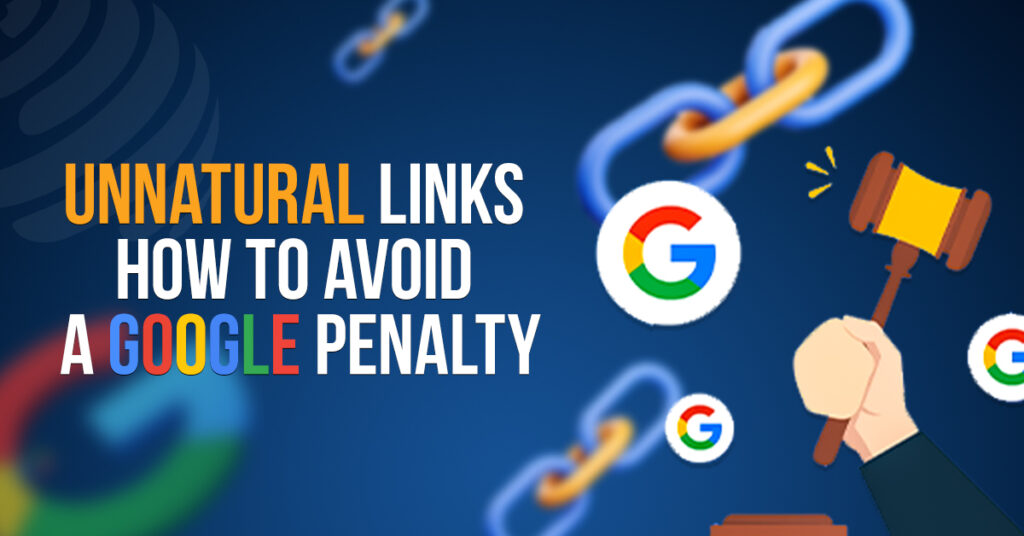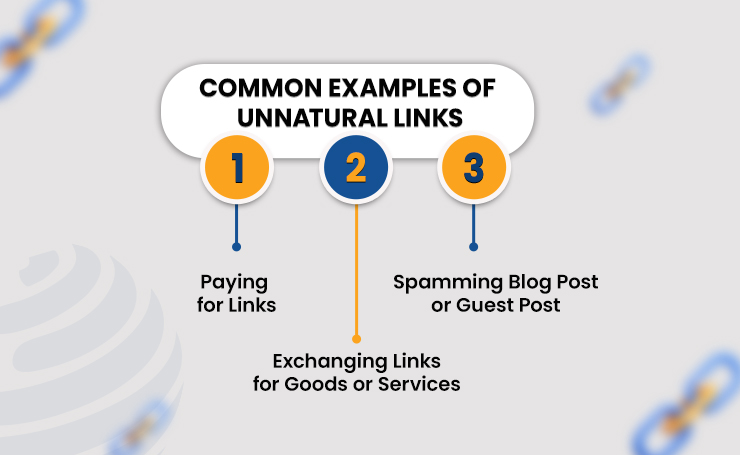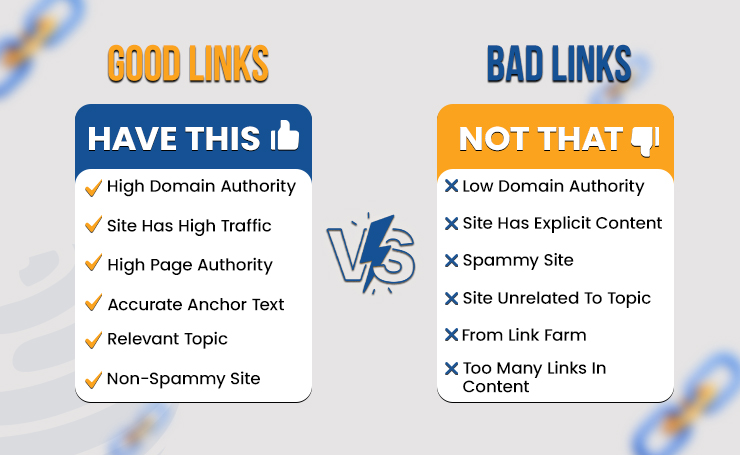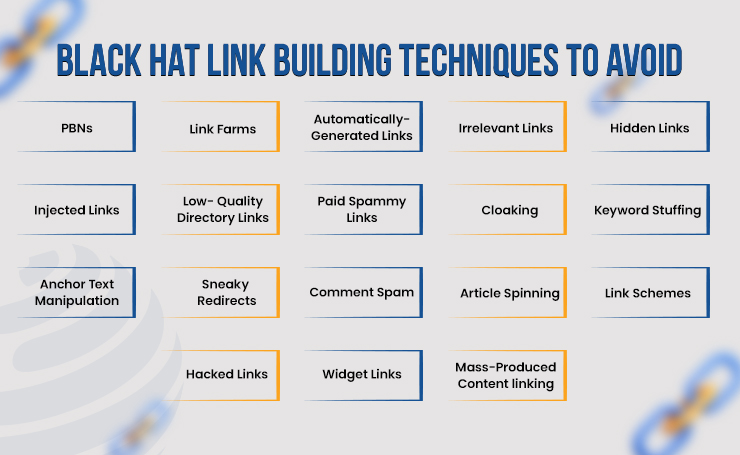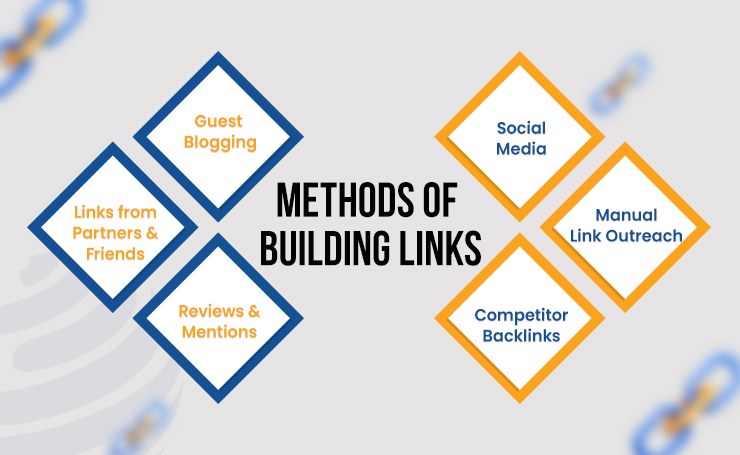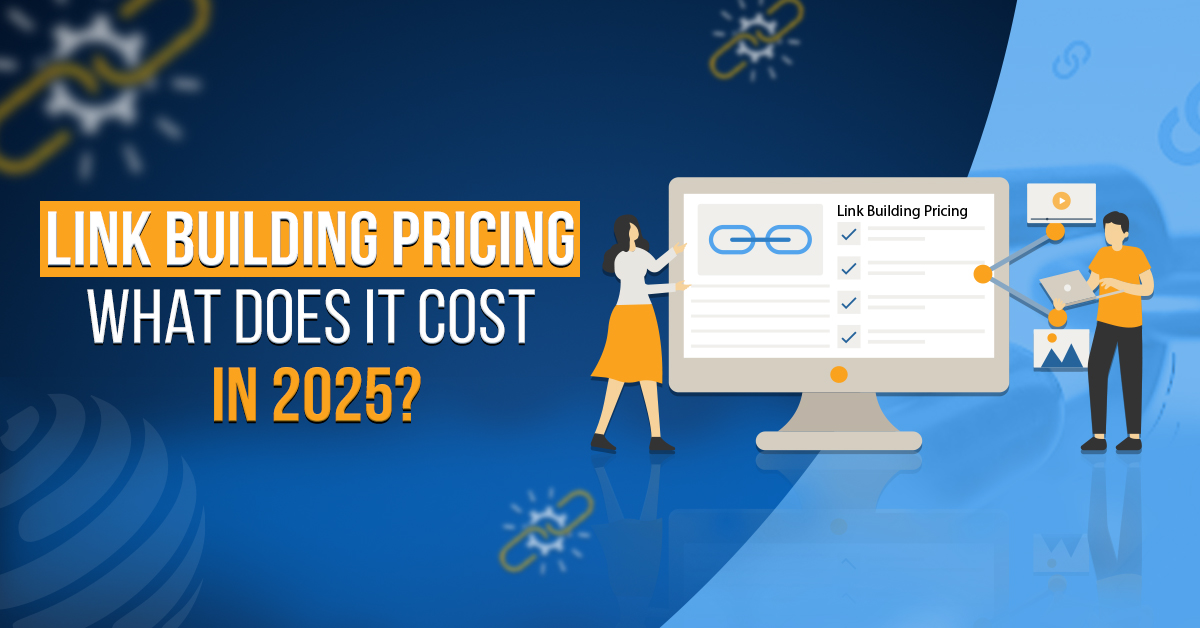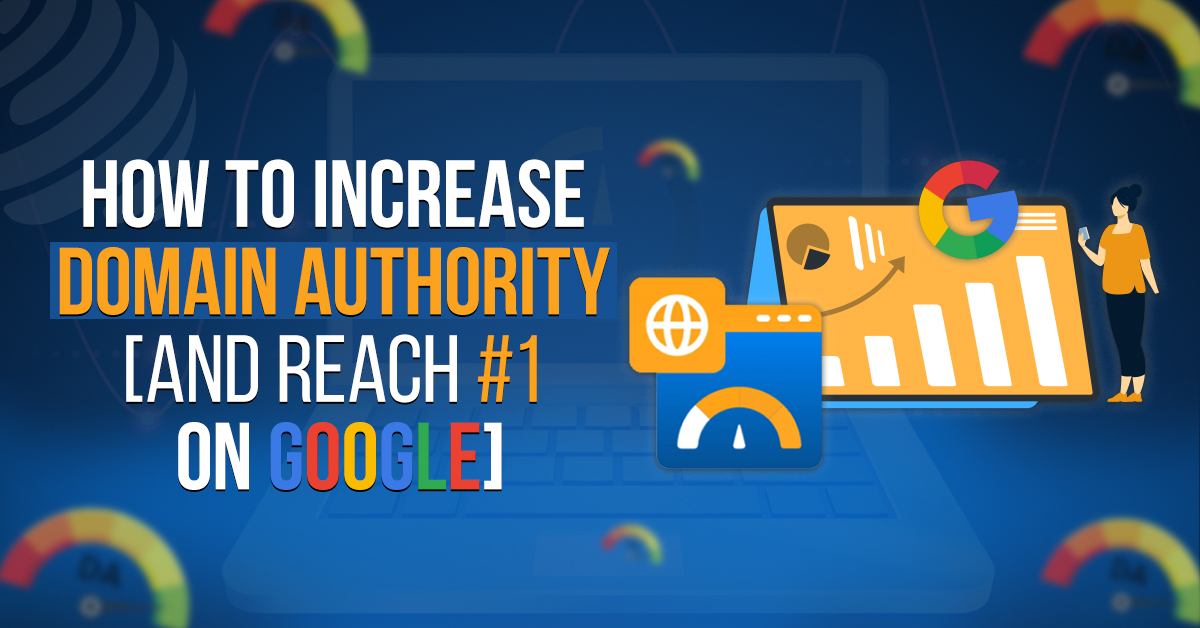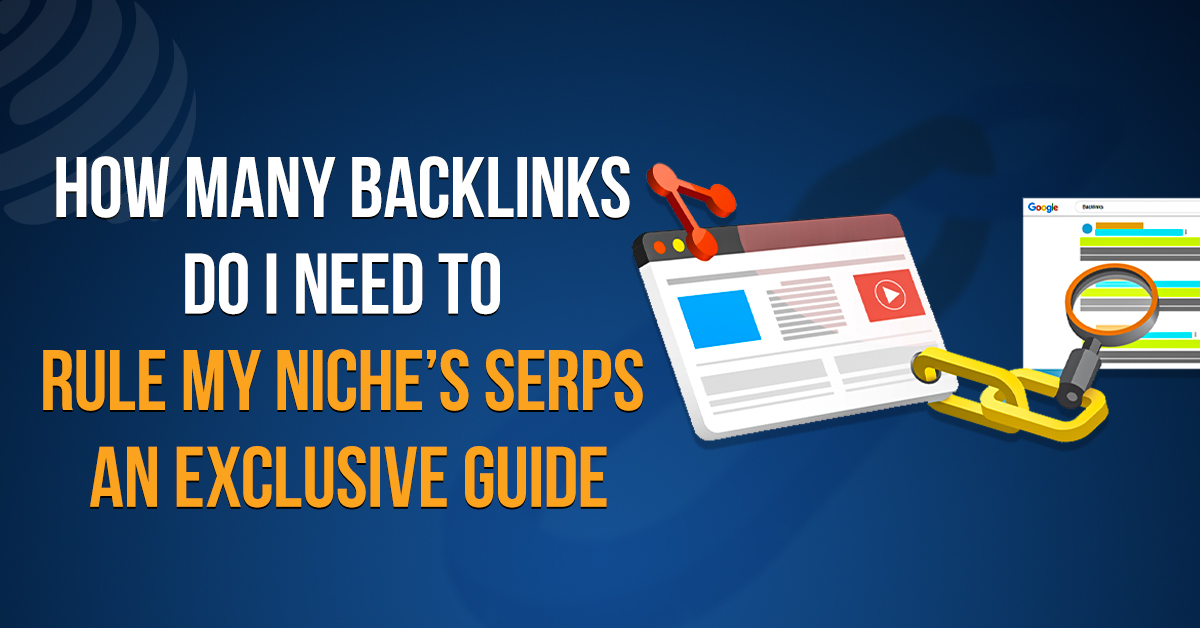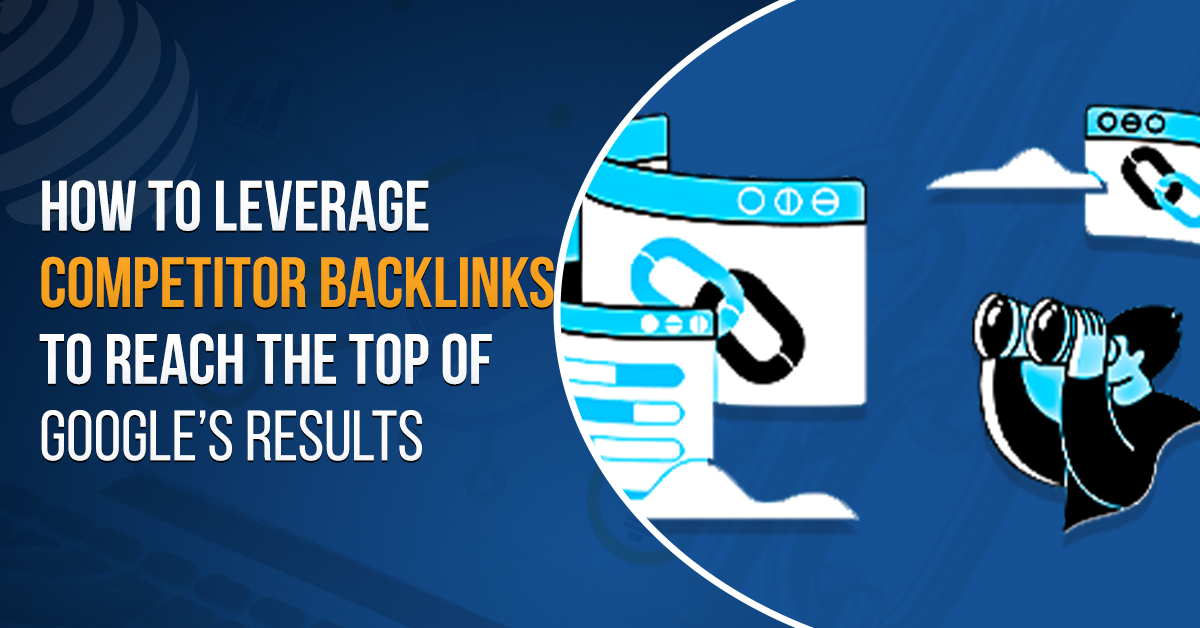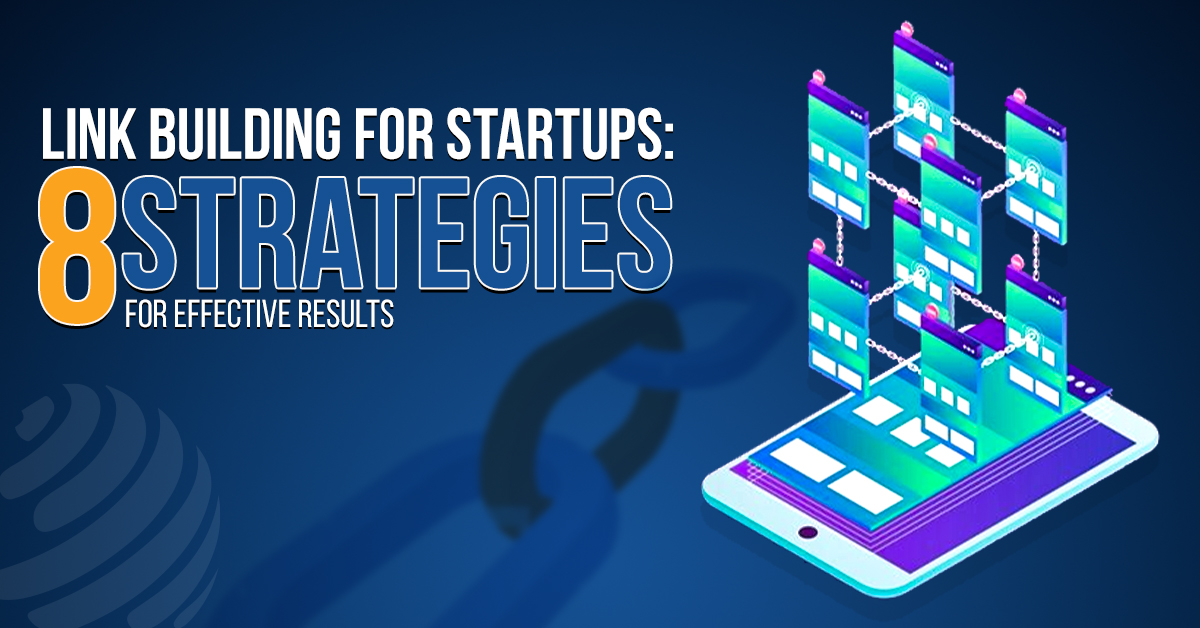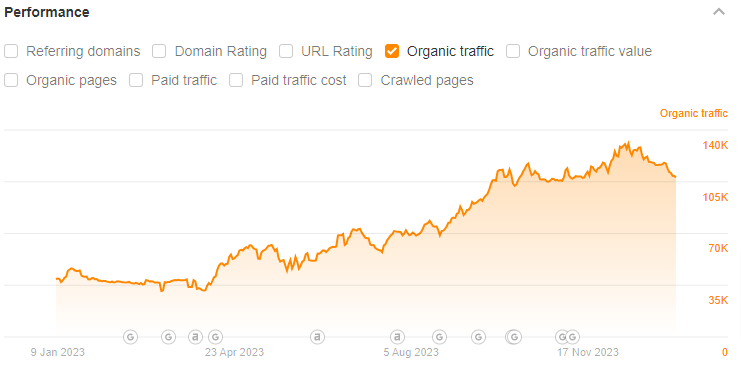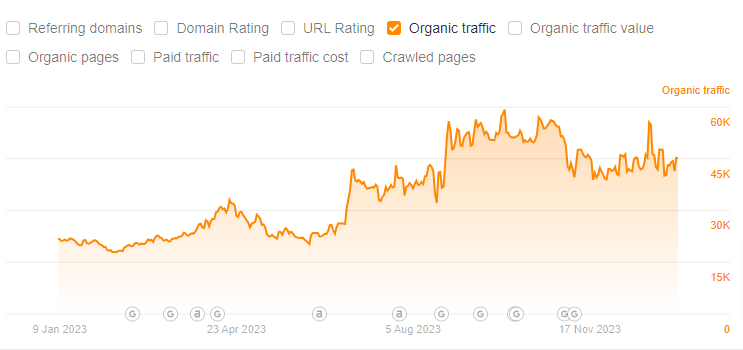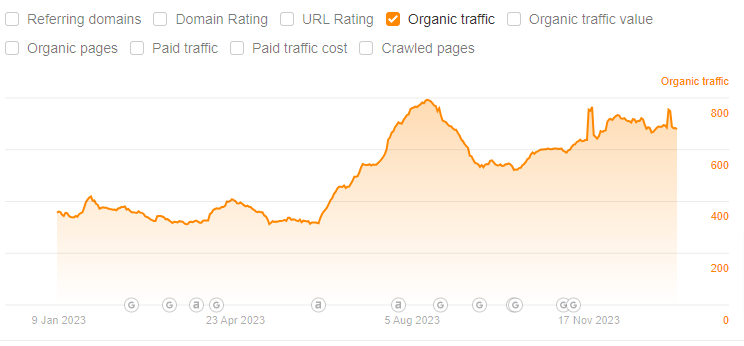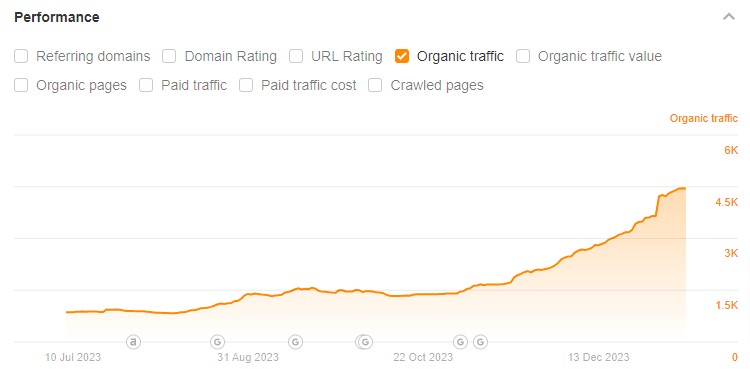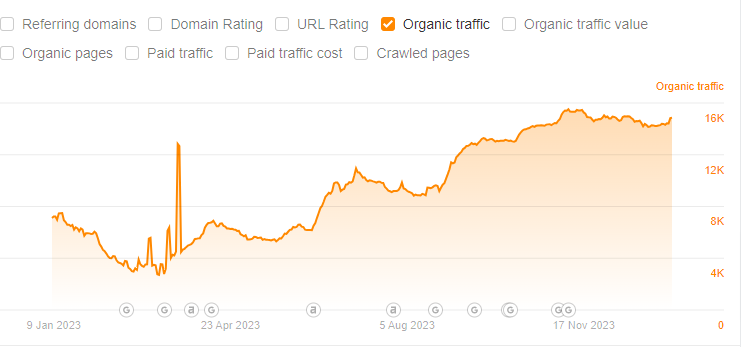Unnatural links are artificial links that are exclusively created to increase a website’s ranking on SERPs. Usually, these links are created through black hat SEO tactics that violate Google’s guidelines and lead to a Google penalty. The penalty by Google for unnatural links is also referred to as a “manual action,” which causes a noticeable drop in your website’s ranking. Your website can also be removed from Google’s index. To avoid violating Google’s guidelines, you must stick to Google’s webmaster guidelines and only integrate white hat link building tactics.
What Are Unnatural Links?
Unnatural links are backlinks that carry no genuine value or relevance for Internet users. The unnatural links are exclusively created artificially to boost a website’s ranking in Google. Essentially, unnatural links lure the search engine algorithms into believing that the backlinks have been gained organically. If you are wondering about the exact definition of unnatural links according to Google’s guidelines, you should know that unnatural links are “links that are gained through fraudulent practices.”
Unnatural links essentially violate the guidelines of Google Webmasters and are exclusively intended to manipulate page ranking in Google search results. Google considers unnatural links as a part of link farming or link schemes, which are categorized as a violation of Google’s guidelines.
Here are the essential characteristics of unnatural links that can help you easily spot them:
- Unnatural links provide no value to the readers.
- Unnatural links don’t contextually fit into the piece of content or the linked website.
- Unnatural links are created using spammy methods.
- Unnatural links are gained through black-hat SEO tactics, such as exchange or purchase.
- The owner of the website doesn’t place unnatural links.
Important Note: You should know that sometimes competitors use unnatural links in negative SEO attacks to impact the ranking of a successful ranking website. Competitors might direct spammy links toward successful websites with the intention of triggering Google penalties.
Examples of Unnatural Links
Now that you know the dangers of unnatural links, it is important to explore some of the examples of unnatural links. Here are some of the most common examples of unnatural links that might result in getting penalized by Google.
Example #1: Link Schemes
Link schemes are known as link farms or PBNs. PBNs stand for private blog networks. Link schemes are essentially black hat link-building techniques that require you to dedicate a website to the goal of building links. Link farms are interconnected sites with the goal of manipulating search engines and gaining SEO benefits.
Link schemes have no value to offer for internet users, which is why these can cause Google penalties.
Characteristics of Websites with Link Schemes
Look out for websites with the following indicators:
- An extensive number of random listed categories.
- Generic stock images
- The website contains no valuable keywords
- No link is contextually relevant
Example #2: Sitewide Links
When used excessively, Google categorized sitewide links as unnatural links and can land you a Google penalty. Essentially, sitewide links are artificially created to manipulate search engine rankings, which is against Google’s guidelines and can lead to a Google penalty. Since sitewide links appear on every webpage of a website, these carry no contextual value, which makes them spammy and seem unnatural.
According to Google’s guidelines, any backlinks that are exclusively designed to manipulate a website’s rankings violate their policies, which is why sitewide links are categorized as unnatural links.
Example #3: Injected Links
You should know that injected links are the fastest way to get penalized by Google. Usually, automated software is used to inject links into a website. Usually, links are injected by hackers who exploit the content management system or the code of the website.
The purpose of injected links is to artificially boost the website’s search engine rankings by creating backlinks from other websites. The underlying reason why injected links pose a major threat to the security of a website is that they can land the website a Google penalty.
What is Google’s Penalty for Unnatural Links?
To avoid unnatural links and Google penalties, you must understand how Google sees these links and why they have a strict policy against unnatural links. It is important to mention here that you need to have more than one unnatural link to earn Google’s wrath. Also, it doesn’t matter whether the unnatural links on your website are more than five years old – Google will still view them as links that were acquired to manipulate the Google algorithm.
In simple words, the lifespan of unnatural links won’t make a difference. Google will still penalize you. As a matter of fact, once your website is penalized by Google, all areas of your website are affected. In other words, Google won’t penalize a specific section or a certain page that contains unnatural links, but the penalty will affect your entire website.
This means that the Google penalty won’t only affect the traffic of that specific page, but you will lose traffic to your entire website. It is important to mention here that Google is great at analyzing money anchors, which are backlinks with exact-match anchor texts for the specific keywords that the website is actually trying to rank for.
Google prioritizes ranking websites with an organic and diverse backlink profile.
The Impact of Unnatural Links on Your Website’s SEO
Let us get straight to the point: unnatural links have no benefits for your website’s SEO. Of course, unnatural links do provide some SEO benefits as these can help website owners gain some short-term benefits, such as the manipulation of Google algorithm and boosting website ranking. However, the truth remains that unnatural links remain disadvantageous in the long run.
Google has multiple systems and algorithms to detect inorganic links, such as the Penguin algorithm update. These updates and algorithms penalize websites that are engaged in black-hat, manipulative link-building tactics.
The Google team also investigates websites manually for potential web spam. Once unnatural links are detected, Google proceeds to issue a “manual action penalty” to the website containing unnatural links. This penalty results in the removal of the website from Google search result pages or its decrease in ranking.
To avoid unnatural rankings, it is crucial for website owners to fully understand what makes unnatural links and which link-building tactics are unnatural. You can regularly perform SEO audits or hire a well-reputed agency for white hat link building services.
How to Avoid Unnatural Links in the First Place?
The following tips will help you avoid unnatural links:
Provide Real, Valuable Content that Others Want to Link To
To avoid unnatural links in the first place, you must focus on attracting high-quality, relevant links naturally through high-quality content. Also, make sure to avoid link schemes and buying links. The truth is that creating valuable content is one of the most effective ways to earn high quality links. When other websites find your content useful and valuable, they will want to link to your content naturally.
Make sure that you have something unusual and valuable to offer by addressing the needs of your target audience. Provide solutions to the queries of your target audience so as to emerge as an authority within your niche. Rest assured, stick to a schedule and update your content regularly so that you can keep encouraging ongoing linking.
Maintain A Diverse Natural Backlink Profile
To avoid unnatural links, you must diversify your backlink profile. If your backlink profile is natural and according to Google guidelines, it won’t rely on a single source for backlinks, such as in the case of link farming. Make sure that your backlink profile is diverse, which you can establish by building relationships with influencers and other website owners within your niche, where you encourage them to link to your website.
Moreover, make sure to use different types of backlinks, including do-follow, internal links, and no-follow links.
What To Do If You Have Unnatural Links?
Now, if you have performed a backlink profile audit and detected that you have quite a few unnatural links or have been penalized, then you need to remain calm. The truth is that getting penalized by Google can happen to the best webmasters out there. The good news is that you can definitely bounce back from the penalty.
You can hire a professional and well-reputed link-building agency. The professional link-builders will help you navigate the complexities of unnatural links and prevent further damage to your website’s SEO. Professional link-builders who specialize in white-hat link-building strategies can help you establish a healthy backlink profile, thus guaranteeing that you obtain authoritative and high-quality links naturally.
On that note, if professional link builders detect unnatural links in your backlink profile, they will use Google’s links disavow tool to effectively disregard the specific unnatural links when assessing your website’s rankings.
Best Tips to Build Links Naturally
Now that you know why you must avoid unnatural links at all costs, let us explore some of the best ways to build links naturally and get in the good books of Google.
Create High-Quality Content
You must make sure that the content is high-quality, unique, and original. Thus, you can turn your content into linkable assets that other people and websites would naturally want to link to. You can create guides, infographics, and case studies. Thus, you will gain organic links through actual quality content. Making your content useful and shareable will double your chances of boosting the number of organic links to your site.
Earn Quality Backlinks Through Guest Posting
Guest posting is still very much effective in 2025 as ever before. Guest posting is also an effective way to establish your brand authority and tap into a broader target audience. Guest posting is a core white hat SEO strategy, which requires you to create valuable content for high-authority and niche-relevant sites to earn backlinks in return.
To leverage guest posting, you need to find potential sites that accept guest posts in your niche. The subsequent step is to write quality content that is well-aligned with the guidelines of the guest posting websites. Get in touch with the respective website owners and pitch your guest posts to them.
If you are unsure about how to write guest posts, you can outsource guest posting services from a well-reputed guest posting agency.
Perform Competitor Analysis
This is one of the easiest white-hat link-building tactics that you can integrate to build natural links. Using the Ahrefs tool, you can assess your competitors’ white hat backlinks. You will get a list of all high-authority and niche-relevant sites linking to your competitors. Assess the ranking content of your competitors and create better content or an updated version that others would want to link to. Subsequently, you must write personalized outreach emails and offer your valuable content in return for backlinks.
Thus, you can find great link-building opportunities without using spammy tactics that can earn you Google’s wrath.
HARO Link Building
HARO is an excellent platform for gaining high-quality backlinks. HARO is a platform for journalists who look for industry experts who can provide valuable information on their questions. As a business, you can provide expert views on industry-related questions and earn high-quality backlinks in return from high-authority and well-known media sources.
To leverage this white hat link building strategy, you must start by being recognized as a valuable source on the HARO platform. Only respond to queries that are specific to your industry. Focus on responding with clear and concise responses, as reporters will prefer answers that are valuable and precise.
Final Thoughts
Understandably, no one wants to earn Google’s wrath in the form of a penalty due to unnatural links. Building links takes time and effort, which is why you must focus on white-hat link-building strategies to boost your website’s rankings organically. One of the best ways to avoid unnatural links and the subsequent Google penalty is by availing yourself of the best link-building services from a reputable link-building agency so that a team of professional experts can build contextual and valuable links for you.
FAQs
What are unnatural links?
Unnatural links are links that manipulate a webpage’s ranking through black-hat link-building tactics, such as buying links or link farming.
What is Google’s penalty for unnatural links?
Google drops the traffic and ranking of a website with unnatural links, as these links are referred to as bad and irrelevant.
How can you tell if your website has been penalized by Google?
If you detect a sudden drop in your website ranking and traffic, you might have been penalized. You might as well receive a notification from Google Search Console.

